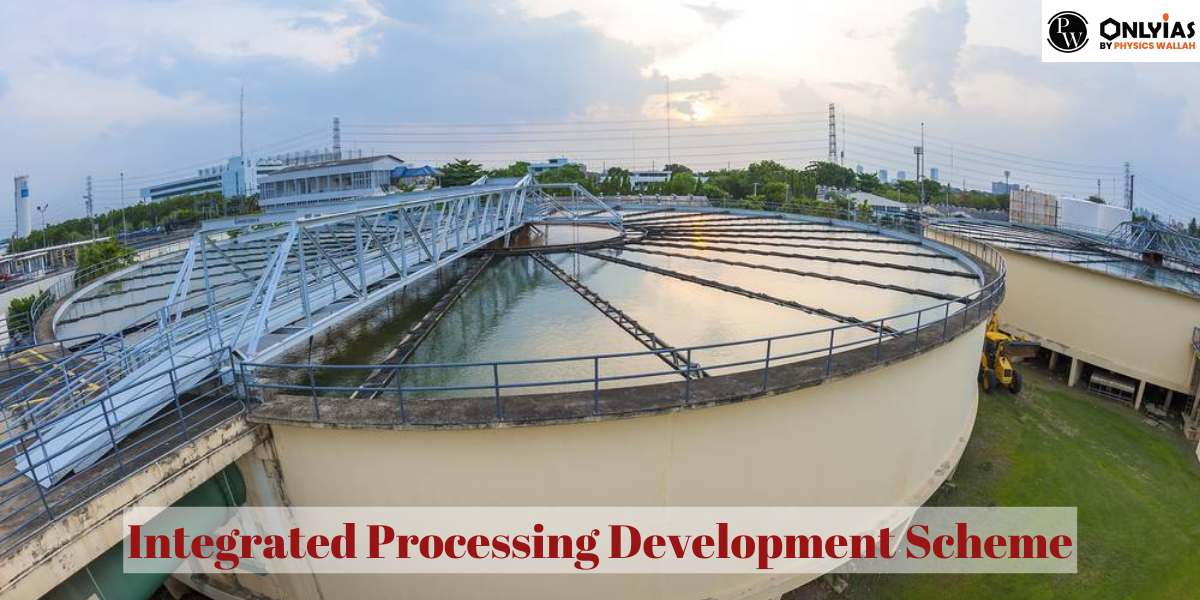![]() Madhavi Gaur
Madhavi Gaur
![]() October 03, 2023 11:57
October 03, 2023 11:57
![]() 3942
3942
![]() 0
0
Indian government has introduced the Integrated Processing Development Scheme (IPDS), a centrally sponsored initiative specifically crafted to address the challenges confronting the textile industry.

Integrated Processing Development Scheme: The textile industry plays a pivotal role in India’s economy, contributing significantly with approximately 2% to the GDP and constituting 13% of the country’s exports. In a bid to foster the growth of this vital sector, the Indian government has introduced the Integrated Processing Development Scheme (IPDS), a centrally sponsored initiative specifically crafted to address the challenges confronting the textile industry.
The primary focus of the IPDS is to augment the competitiveness of textile processing units by extending financial support for the modernization and upgradation of their infrastructure. This scheme is anticipated to have a substantial impact on the establishment of both greenfield and brownfield projects, as well as the development of new processing parks. The Ministry of Textiles serves as the nodal ministry overseeing the implementation of the Integrated Processing Development Scheme.
For aspirants preparing for the UPSC Civil Services Exam, the Integrated Processing Development Scheme (IPDS) is a crucial topic falling under the General Studies (GS-2 and GS-3) paper. This article delves into the scheme’s objectives, significance, funding mechanism, the role of Special Purpose Vehicles, and other pertinent details, providing comprehensive preparation material for both the Prelims and Mains stages of the UPSC IAS/IPS exam.
In March 2020, the central government introduced the PLI scheme for Textiles products, encompassing Man Made Fibre (MMF) Apparel, Fabrics, and Technical Textiles. This initiative aims to bolster India’s manufacturing capabilities and augment exports. Notably, the Union Cabinet approved a budget of Rs 10,683 crore for a five-year period in September 2021, coupled with the removal of import duties on cotton.
The IPDS, a central government initiative, addresses challenges within the textile processing sector. Launched during the 12th Five Year Plan in October 2013, it draws inspiration from the success of Integrated Textile Parks (ITP). Administered by the Ministry of Textiles, the scheme operates with a financial outlay of Rs. 500 crore.
Under the IPDS, the focus lies on developing four to six brownfield projects and three to five greenfield projects. These projects entail common facilities such as wastewater management plants, testing laboratories, and water supply systems, benefiting clusters of processing units.
The scheme prioritizes addressing challenges in the textile processing industry, emphasizing:
The primary objectives include establishing four to six brownfield and three to five greenfield projects, addressing the needs of existing Textile Clusters. These projects cover facilities like water treatment and effluent treatment plants, captive power generation plants, and testing laboratories.
Several agencies play crucial roles in the administration, operation, and implementation of IPDS, including Project Management Consultant (PMC), Special Purpose Vehicle (SPV), Project Management Agency (PMA), Project Scrutiny Committee (PSC), and Project Approval Committee (PAC).
A Special Purpose Vehicle (SPV) is a legal entity established for a specific purpose. In IPDS, SPVs serve as key entities responsible for conceptualizing, formulating, implementing, and managing infrastructure. SPVs ensure self-sustainability and positive revenue streams.
<div class="new-fform">
</div>

Latest Comments